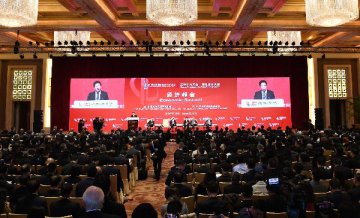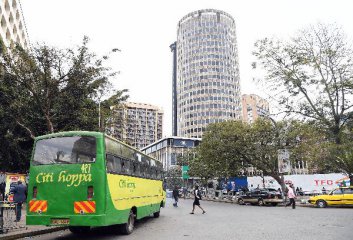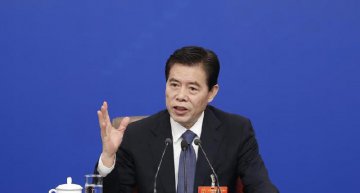
BEIJING, April 10 (Xinhua) -- A year after China unveiled a slew of measures to further open up, at the annual conference of the Boao Forum for Asia (BFA) on April 10, 2018, the country has honoring its commitments.
The following are the key areas where advancements have been made.
MORE ATTRACTIVE BUSINESS ENVIRONMENT
Streamlining the approval process of construction projects, optimizing custom clearance process of cross-border trade, and drafting and revising related business regulations are the latest efforts to improve the business environment, said Zou Jiayi, vice minister of finance at a recent press briefing.
The efforts in improving the business environment have yielded positive results, with China ranking 46th globally for ease of doing business in 2018, up from 78th in 2017, according to the World Bank.
Together with improving the business environment, a negative list for foreign investment was part of the initiatives mentioned at the BFA annual conference 2018 to create a more attractive investment environment.
The foreign investment law passed on March 15 this year, stipulates that the state shall manage foreign investment according to the system of pre-establishment national treatment plus a negative list, a landmark legislation that will provide stronger protection and a better business environment for overseas investors.
Meanwhile, China vowed to shorten the negative list for foreign investment by making another revision on the negative list for foreign investment, issuing the updated list at the end of June.
BROADENING MARKET ACCESS
Seeing more foreign financial institutions accessing the Chinese market over the year shows that China has matched its words with actions when it comes to broadening market access.
For instance, UBS AG has become the first foreign bank to raise its stake to a majority 51 percent in a securities joint venture in China, while Allianz (China) Insurance Holding Company Limited, the country's first wholly-owned insurance holding company by a foreign insurer, has been approved to be set up.
S&P Global Inc. was allowed to enter China's credit rating market. American Express received permission to establish a joint venture focusing on bank card clearing and settlement.
EXPANDING IMPORTS
China International Import Expo (CIIE) will continue to be of great appeal to the country's trade partners. More than 1,800 companies have signed up for the second CIIE, scheduled for early November this year.
A total of 172 countries, regions and international organizations and more than 3,600 enterprises participated in the first CIIE, held from Nov. 5-10 in Shanghai last year.
The government has said the country will import more than 30 trillion dollars worth of commodities and 10 trillion dollars worth of services in the next 15 years.
A significant boost to imports will also come from tariff cuts which involved not only vehicles and auto parts, but also many cancer drugs.
The overall tariff rate on imported goods was lowered from 9.8 percent to 7.5 percent in 2018.
China has also lowered the tax rates on inbound consumer goods. Starting from April 9 this year, the tax rate on products including food and medicine was lowered from 15 percent to 13 percent and the rate for commodities including textiles and electric appliances was cut from 25 percent to 20 percent.
IPR PROTECTION
To help nurture a favorable legal environment for technological innovation and deliver the promise of strengthening intellectual property rights (IPR) protection, China's Supreme People's Court started to hear IPR appeals, including a broad range of lawsuits, such as patents, copyright, trademarks, new plant varieties, integrated circuit layout design and monopoly from Jan. 1.
Last year, the Beijing Intellectual Property Court handled about 18,000 IPR cases, up 19 percent year on year. It also closed about 15,000 IPR-related cases, up 18 percent year on year.























Latest comments